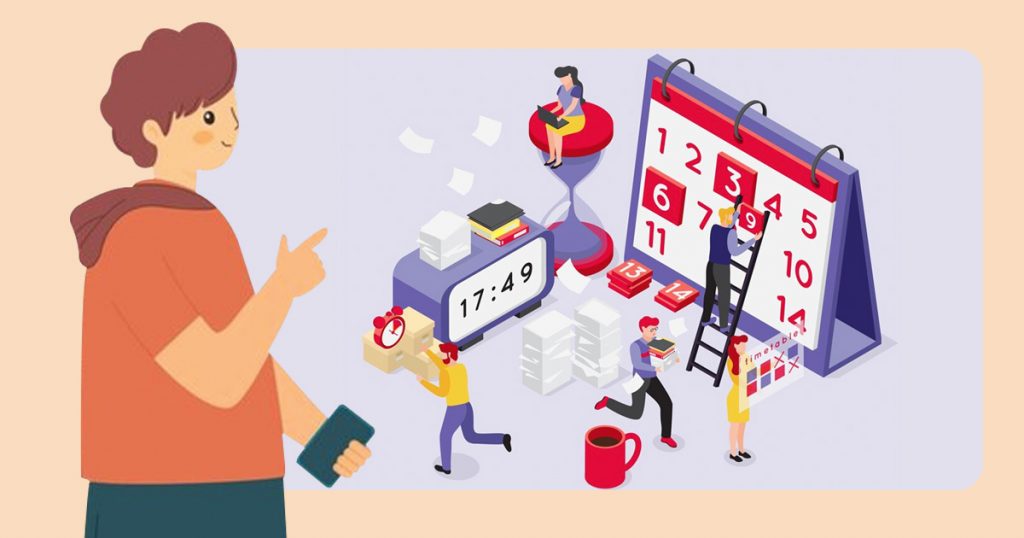For busy people, being able to book an appointment easily is one less thing to worry about. A fast and simple scheduling process makes life a lot easier when time is so precious. Studies show that 67% of people prefer booking appointments online instead of making a call, and 82% like using their phones to do it. This shows how much customers value flexible and easy ways to connect with businesses. It saves time, reduces stress, and helps them plan their day better without the hassle of calling or waiting.
But what about businesses? Do they also gain anything by using appointment scheduling systems? Besides making things easier for customers, can these systems bring real benefits to the companies that use them?
Do Businesses Benefit from Scheduling Processes?
Definitely. Using appointment scheduling tools helps businesses in many ways. These tools simplify customer interactions, save time, and reduce mistakes. Here are 10 reasons why appointment scheduling is beneficial for businesses:
1. Better Customer Experience
Customers love being able to schedule appointments whenever it suits them. For example, a dental office with an online booking system lets patients choose a time without waiting for office hours. This makes things easier for the customer and builds trust and loyalty.
2. Saves Time
Scheduling systems prevent wasted time by automating tasks. A salon, for instance, can fill appointment gaps without needing staff to answer a bunch of phone calls. This lets employees focus more on providing great service.
3. Fewer No-Shows
Sending reminders by text or email helps customers remember their appointments. For instance, a gym can remind members about their upcoming sessions the day before. This simple step reduces missed appointments and keeps operations running smoothly.
4. Easier Staff Management
Scheduling tools show employees their tasks and timelines clearly. For example, a clinic can assign doctors based on patient needs, ensuring everyone knows their schedule and the right professional handles each case.
5. Avoids Scheduling Mistakes
Digital tools eliminate double-booking and scheduling conflicts. For example, a restaurant can use an app to manage reservations, ensuring tables are available for each customer and service is seamless.
6. Available Anytime
Online booking means customers can make appointments even when your business is closed. For example, a spa could allow clients to book late at night, capturing more opportunities to fill its schedule.
7. Useful Business Data
Scheduling tools can show details like your busiest times. A tutor, for instance, might see that evening slots are in high demand, so they can offer more hours during that time to meet customer needs and grow their business.
8. Shows Professionalism
Having a well-organized system shows clients that a business values their time. For example, a therapist who uses proper scheduling tools for sessions gives clients confidence in their reliability and organization.
9. More Chances to Sell
With customer history stored in scheduling systems, businesses can offer extra services. A beauty salon might suggest a nourishing hair treatment when someone books a haircut, adding value and boosting sales.
10. Stronger Customer Bonds
Modern tools allow for personalized touches, like remembering a client’s favorite service or sending tailored reminders. For example, if a hairdresser knows a client prefers morning appointments, they can offer this option consistently, which helps build loyalty.
When Does Appointment Scheduling Work Best?
Appointment scheduling works best for businesses that meet with clients regularly or offer time-based services. Industries like healthcare, beauty salons, gyms, and consulting firms rely heavily on well-organized schedules to operate smoothly.
It’s especially handy during busy periods when businesses deal with more customers than usual and need to stay efficient. Scheduling also shines when a company has multiple staff members or service options because it ensures everything runs without conflicts or missed opportunities.
If a business is often dealing with no-shows, last-minute cancellations, or scheduling mistakes, an appointment scheduling system becomes incredibly helpful. It’s also ideal for companies with online customers or those dealing across different time zones since it simplifies the entire process.
Simply put, appointment scheduling is most effective when it’s used to save time, organize services, and meet customer expectations in a structured way.
How Appointment Scheduling Systems Help Businesses Succeed
Appointment scheduling systems are more than tools for managing bookings—they help businesses grow and improve. By handling tasks like reminders, confirmations, and cancellations automatically, these systems save time and allow businesses to focus on what really matters: serving their customers and running their operations smoothly.
They also help build stronger customer connections. Whether it’s sending personalized reminders or keeping track of what clients like, these systems make every interaction more meaningful. For instance, a fitness studio can send a friendly nudge about a class and suggest something else the client might enjoy.
What makes these systems even better is their ability to work with other tools. They can link to marketing platforms for promotions, CRM software to organize client information, and payment systems to handle deposits with ease.
Choosing the right system for your business helps you stay organized, make things easier for your customers, and set up for future success. These tools do much more than schedule appointments—they create better workflows, happier customers, and more opportunities to grow.
